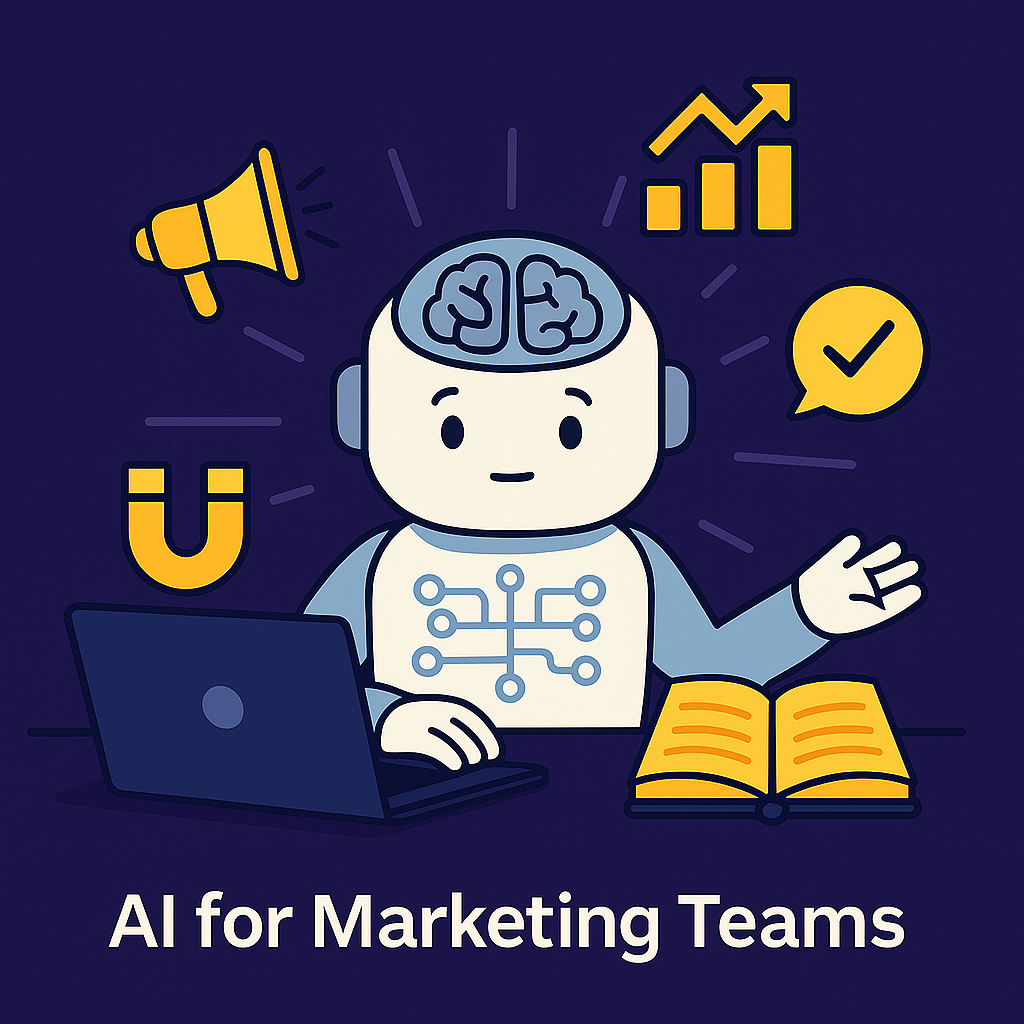In today’s rapidly evolving digital landscape, artificial intelligence (AI) is revolutionizing marketing strategies, offering tools that enhance efficiency, personalization, and data-driven decision-making. For marketing teams aiming to stay ahead, understanding and using AI marketing tools is no longer optional—it’s essential.
What is an AI Marketing Tool?
Understanding AI Tools for Marketers
AI marketing tools are AI-powered marketing software solutions that utilize machine learning algorithms and data analytics to automate and optimize marketing tasks. These tools helps analyze vast amounts of data to provide insights, predict customer behavior, and personalize content, thereby enhancing marketing effectiveness.
How Do AI Tools Enhance Digital Marketing?
By using AI marketing tools for automation and automating repetitive tasks, AI tools free up marketers to focus on strategy and creativity. They enable real-time data analysis, allowing for timely adjustments to campaigns. For instance, AI ai email marketing tools can optimize email send times, personalize website content, and segment audiences more effectively.Userpilot+19Clappia+19Insider+19IBM
Common Features of AI Marketing Tools
- Predictive Analytics: Forecasting customer behavior and campaign outcomes.
- Content Generation: Creating personalized content at scale.
- Chatbots and Virtual Assistants: Providing instant customer support.
- Customer Segmentation: Grouping audiences based on behavior and preferences.
- Performance Tracking: Monitoring and analyzing campaign performance in real-time. Social Media Strategies Summit Blog+1The Australian+1
How Can Marketers Use AI in Marketing?
Incorporating AI-Powered Tools into Marketing Campaigns
Integrating AI tools for marketing campaigns can significantly enhance their effectiveness. For example, AI can analyze customer data to identify the best channels and times to reach specific segments, ensuring messages resonate with the intended audience.
Benefits of Using AI for Email Marketing
AI enhances email marketing by personalizing content, optimizing send times, and segmenting audiences more accurately. Tools like Mailchimp and Brevo use AI technologies to analyze user behavior, increasing open rates and conversions.
Using AI for Content Marketing Strategies
AI can generate content ideas, optimize headlines, and even write articles with AI writing assistant. AI writing tools like Jasper AI and Writesonic assist in creating engaging content tailored to target audiences, saving time and ensuring consistency in brand messaging.
What Are the Benefits of Using AI for Marketing?
Improving Efficiency with AI Marketing Automation
AI automates routine tasks such as data analysis, customer segmentation, and content scheduling, allowing marketing teams to focus on strategic initiatives. This leads to increased productivity and faster campaign rollouts.
Enhancing Customer Engagement through AI
By analyzing customer data, AI enables personalized interactions, enhancing customer experiences. Chatbots, for instance, provide instant responses to inquiries, improving customer satisfaction and engagement. Userpilot+1girikon.com+1
Data-Driven Decision Making with AI Tools
AI tools can also process large datasets to uncover insights about customer behavior, campaign performance, and market trends. This data-driven approach allows marketers to make informed decisions, optimizing strategies for better ROI.
What Are the Best AI Marketing Tools Available?
Top AI Tools for Social Media Marketing
- Sprout Social: Offers AI-driven analytics and social listening tools.
- Hootsuite: Provides scheduling and performance tracking with AI insights.
- Buffer: Utilizes AI to suggest optimal posting times and content.
Best AI Marketing Tools for Email Campaigns
- Mailchimp: Features AI-powered audience segmentation and predictive analytics.
- Sendinblue: Offers AI-driven email personalization and automation.
- ActiveCampaign: Provides advanced AI tools for email marketing automation.
AI Marketing Tools for Content Creation
- Jasper AI: Assists in generating high-quality content quickly.
- Writesonic: Offers AI-powered content creation for various formats.
- Copy.ai: Helps create engaging copy for ads, emails, and social media. HubSpot Blog
How to Incorporate AI into Your Marketing Strategy?
Steps to Use AI in Marketing Campaigns
- Identify Needs: Determine which marketing tasks can benefit from AI.
- Select Tools: Choose AI tools that align with your objectives.
- Integrate Systems: Ensure AI tools integrate seamlessly with existing platforms.
- Train Teams: Educate your team on using AI tools effectively.
- Monitor Performance: Continuously assess the impact of AI on your campaigns.
Evaluating AI Solutions for Your Marketing Team
When selecting AI tools, consider factors such as ease of use, scalability, integration capabilities, and customer support. Assess whether the tool meets your specific marketing needs and objectives.
Measuring the Impact of AI on Marketing Efforts
Track key performance indicators (KPIs) such as engagement rates, conversion rates, and ROI to evaluate the effectiveness of AI tools. Use these insights to refine strategies and improve outcomes.
What are the Challenges of Using AI in Marketing?
Overcoming Barriers to AI Adoption in Marketing
Challenges include high implementation costs, lack of technical expertise, and resistance to change. To overcome these, start with pilot projects, provide training, and demonstrate the value of AI through measurable results.
Addressing Data Privacy Concerns with AI Tools
AI tools rely on vast amounts of data, raising privacy concerns. Ensure compliance with data protection regulations like GDPR by implementing robust data governance policies and obtaining necessary consents.
Common Misconceptions About AI in Marketing
Some believe AI capabilities will replace human marketers; however, AI is a tool that enhances human capabilities. It handles data processing and routine tasks, allowing marketers to focus on creativity and strategy.
For a deeper understanding of integrating AI into business strategies, consider reading AI First, Human Always by Sandy Carter. This book offers insights into adopting an AI-first mindset while maintaining a human-centric approach, essential for modern marketing teams.
